Lawyers unlock valuable insights through data

Roula Khalaf, Editor of the FT, selects her favourite stories in this weekly newsletter.
For today’s legal practitioners, the most effective innovations can simply involve making better use of what they already have: vast amounts of data. And this better use of data can deliver benefits for both their clients and their firms.
As our winner, Alexander Oddy, shows, identifying the variables that affect dispute resolution cases can transform a decision on whether to settle or litigate from an imponderable into a percentage game — recovering more at lower risk.
Equally, data points on past cases and lawyers’ timecards can ensure the cost to clients is much more predictable. But data analysis is nothing without a framework on which to share it, which makes lawyers’ work on developing data trust networks especially valuable.
Perhaps the neatest innovation, though, combined the new with the old school: using data to see where in the world projects have been underperforming but then pounding the pavement — not the keyboard — to get the full story.
Profiles compiled by RSGI researchers and FT editors. ‘Winner’ indicates the individual won an FT Innovative Lawyers Europe 2022 award
WINNER: Alexander Oddy
Partner, Herbert Smith Freehills
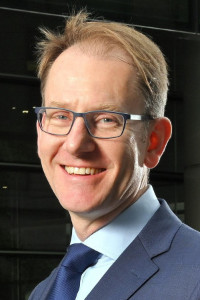
As a co-leader devising HSF’s global data strategy, Alexander Oddy unlocks valuable insights. For example, he created Project Jigsaw, a tool that gives clients accurate cost predictions based on previous outlay. Oddy is also behind the firm’s Legal Privilege app, a free tool to help clients decide if a document is legally privileged by guiding them through a questionnaire.
One standout innovation was a “decision analysis” service to help clients make strategic choices in disputes. Rather than making decisions, such as whether to litigate or settle, based on a lawyer’s judgment, the firm uses decision trees that show the likelihood of various outcomes. In 2018, the service was used to advise SBM Offshore, a Netherlands supplier to the oil and gas industry, to reject an initial offer in a dispute related to an insurance claim. The client went on to recover a far greater amount.
Cynthia Chan
Partner, PwC UK

A partner in the international business reorganisation team, Cynthia Chan saw how the complexity of large multi-jurisdictional projects led to lots of documents repeating information in different ways.
She led the development of automation software to standardise information and reduce human error. It has been used in more than 2,000 client projects and led to savings of about £400,000.
Chan hopes this tech will give lawyers a greater chance to focus on higher value, more interesting work — and to spend less time on the drudgery of document review.
Chan is also behind a data visualisation tool that presents summaries of transactions to clients. Greater insight can speed up strategic decisions.
Jannan Crozier
Partner, Baker McKenzie
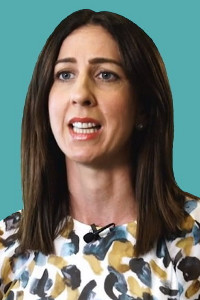
Jannan Crozier led the rollout of a programme to put lawyers, project managers and tech experts on an equal footing, and to help them to improve collaboration. Before working together, project managers with expertise in seeing the big picture were trained in legal nuances, while lawyers learnt about technology and were urged to push it to the limit.
The effect of this programme was clear in 2021 when Crozier and her team advised Olam International. The food and agribusiness wished to split, but issues such as global grain interests and international shipping made this complex.
Using project and matter management technologies, the company was successfully divided and one of the new entities was listed in London.
Roberta Downey
Partner, Vinson & Elkins

In a dispute between a chemical plant and an engineering company that is yet to be decided, Roberta Downey implemented a case management system using technology to better organise documents. She also encouraged young lawyers to take ownership of processes.
When big projects end in a dispute, they usually involve arbitrations over an extended period. This is costly and time-consuming. Downey’s work cut the length of arbitration from up to 10 years to two.
Downey also hosts global conferences in which barristers and experts role-play fictional case studies. These use a reverse narrative, an approach borrowed from Harold Pinter’s Betrayal, to teach lawyers where problems can arise.
Bernhard Fiedler
Partner, Norton Rose Fulbright
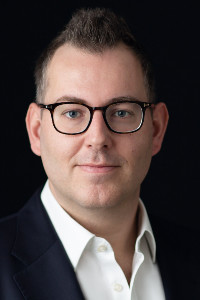
Bernhard Fiedler was inspired by the start-up culture in Berlin, where he spent time with entrepreneurs creating technology products in rundown offices. He wondered how he could apply their culture to a large traditional legal firm.
One way was to create a tool that automates documentation for banking transactions, to avoid repetition of tasks. This has driven time and cost savings of between 80 and 90 per cent.
Then, in 2019, Fiedler launched a service that provides generic legal opinions to financial institutions across different transactions and jurisdictions. This improves efficiency and cuts costs. As of this year, the service is used by lenders including 10 of Europe’s largest investment banks.
Chris Martin
Partner, Pinsent Masons
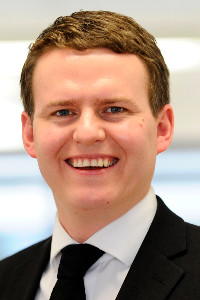
Chris Martin is unlocking the power of large data sets and machine learning. For society and business to benefit from data, the information needs to be secured and managed responsibly. So, Martin co-led the firm’s development of data trust frameworks, which set out legal and governance structures.
The Smart Data Foundry is an example of a data trust framework in action, with Martin advising on Edinburgh University’s collaboration with fintech companies to aggregate data to detect banking threats, including fraud.
Martin also advises Costain, the construction company, on the open data platform for water supply infrastructure.
Carolina Pina
Partner, Garrigues
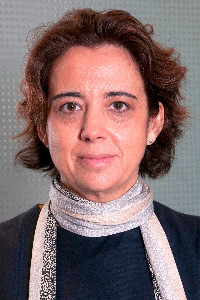
Carolina Pina has worked in internet law for 28 years, leading cases that have contributed to the legal framework for the digital economy. In 2013, she won a case in Spain that set criteria for the expectation of privacy.
She also advises clients on content moderation and how to balance free speech against privacy defamation and intellectual property rights. At a time when Slapps — strategic lawsuits against public participation — are used by powerful people to intimidate the media, Pina has declined to help with such work.
In 2019, she assisted in the creation of Garrigues Digital, a cross-disciplinary team that has brought in more than 400 companies as clients.
Lee Shankland-Gort
Partner, Addleshaw Goddard
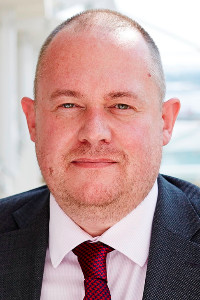
Since becoming a partner in 2007, Lee Shankland-Gort’s practice has become a leading adviser to lenders in the UK social housing sector. In 2018, the team structured one of the UK’s earliest sustainability-linked loans, when banking group BNP Paribas loaned £100mn to London and Quadrant Housing Trust.
The team now focuses on financial products where lenders link loans to environmental, social and governance aims. This includes acting for NatWest bank in 2021 on a £100mn loan facility to Clarion Housing Group, where interest rate margins are lower if Clarion places more apprentices in roles. This kind of approach attracts more socially conscious lawyers, says Shankland-Gort.
Stephen Shergold
Partner, Dentons
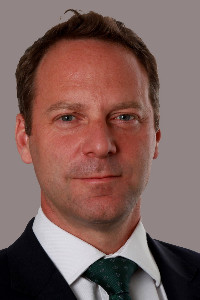
When Stephen Shergold noticed that Africa-related projects in the firm’s energy, infrastructure and project financing department were underperforming, he visited 15 countries to find out why. It led him to develop a strategy of placing African lawyers at the centre of the work — not letting London dominate. His aim is for Africa to be core to the firm’s global business, and Dentons now has more than 70 partners in 17 African jurisdictions.
Shergold supports clients on the legal risks as well as the opportunities of environmental, social and governance-related projects. In 2019, he created a tool that assesses ESG legal risks, which has been used by energy company TotalEnergies for a project in Uganda.
Jesús Yáñez
Partner, Ecija
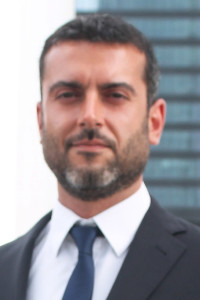
Jesús Yáñez believes that a cyber security lawyer must thoroughly understand both the law and technology. He set up his firm’s cyber security centre which advises clients on security breaches in the hospitality and telecommunications sectors. The team has also advised on biometric identification systems for financial institutions and privacy and data analytics for banks, including Santander.
Yáñez has advised the European Central Bank and the European Banking Authority on technical and legal issues.
Within the firm, Yáñez led the development of a data analytics tool that brings together finance, document management, project management and human resources in a secure platform which connects 31 offices.
Comments